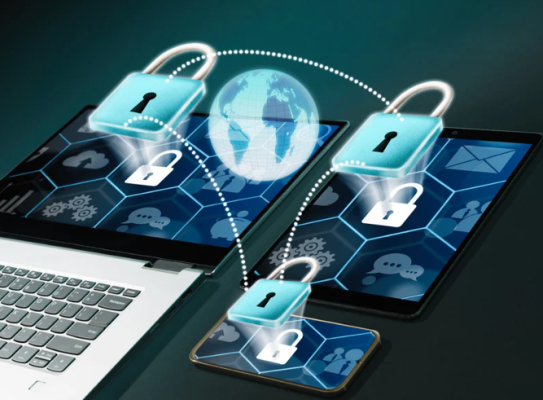
In an era where financial transactions are overwhelmingly
conducted online, ensuring the security of online banking activities is
paramount for businesses of all sizes. Here are some essential best practices
for safe online banking that can help protect your business from fraud and
cyber threats:
1. Use Strong, Unique Passwords: For each banking
account, use a strong, unique password composed of a mix of letters, numbers,
and special characters. Avoid using easily guessable passwords such as common
words, sequences, or personal information.
2. Enable Multi-Factor Authentication (MFA): Always
activate multi-factor authentication on your banking accounts. MFA adds an
additional layer of security by requiring multiple forms of verification, such
as a password and a code sent to your phone, before access is granted.
3. Secure Your Network: Ensure that any device used
for online banking is connected to a secure network. Avoid using public Wi-Fi
for financial transactions without a virtual private network (VPN). A VPN
encrypts data transmission, making it difficult for hackers to intercept or
steal information.
4. Keep Software Up to Date: Regularly update the
operating system, browsers, and any security software on devices used for
online banking. Updates often include security patches that protect against new
threats.
5. Monitor Bank Accounts Regularly: Check your bank
accounts frequently to spot any unauthorized transactions as early as possible.
Early detection of suspicious activity can help prevent further damage and
facilitate the recovery process.
6. Educate Employees About Phishing Scams: Train
employees to recognize phishing attempts and other common scams. Phishing
emails or messages attempt to trick users into providing sensitive information
or clicking on malicious links that can lead to security breaches.
7. Use Dedicated Devices: Consider using a dedicated
computer or device solely for online banking. This limits exposure to potential
security threats from other internet activities.
8. Implement Access Controls: Restrict access to
online banking accounts to only those employees who need it to perform their
job functions. Ensure that access rights are updated promptly when employees
leave the company or change roles.
9. Set Up Alerts: Many banks offer customizable
alerts that notify you of activities in your account such as large transactions
or changes to account information. These alerts can be a first line of defense
against fraud.
10. Work with Reputable Banks: Choose a bank known
for its strong security measures and positive customer safeguarding reputation.
Some banks offer advanced security features tailored to the needs of business
clients.
By following these best practices, you can significantly
reduce the risks associated with online banking. At Cyber Safe Business, we
help businesses implement robust cybersecurity measures tailored to their
specific needs.
👉 Concerned about the
security of your online banking activities? Contact Cyber Safe Business today
for expert advice and support in enhancing your financial transaction security.
#OnlineBanking #Cybersecurity #SafeBanking #SmallBusiness
#DataProtection #CyberSafeBusiness #FinancialSecurity